"Theocritus, Bion and Moschus" (1922), as published
across two volumes by
The Medici Society Limited (London), includes an adaptation
of works attributed to the Greek Bucolic poets that had
been translated by Andrew Lang from the texts of Wordsworth (in the case of
Theocritus) and Ziegler (in respect of Bion and Moschus).
A brief description of the lives of the poets is provided
through references to ancient sources - those appear below.
Life of Theocritus (from "Suidas")
Theocritus, the Chian. But there is another Theocritus,
the son of Praxagoras and Phillina or
as some say of Simichus. He was a Syricusan, or, as
others say, a Coan settled in Syracuse.
He wrote the so-called "Bucolics" in the Dorian dialect.
Some attribute to him the following
works:- "The Proetidae", "The Pleasure of Hope", "Hymns",
"The Heroines", "Dirges",
"Ditties", "Elegies", "Iambics", "Epigrams". Be it known
that there are three Bucolic poets:
this Theocritus, Moschus of Sicily, and Bion of Smyrna,
from a village called Phlossa.
Life of Theocritus (usually prefixed to the "Idyls")
Theocritus the Bucolic poet was a Syracusan by
extraction, and the son of Simichidas, as he
says himself, "Simichidas, pray whither through the noon
dost thou drag thy feet?" ("Idyl VII").
Some say that this was an assumed name, for he seems to
have been snub-nosed and that
his father was Praxagoras, and his mother Philinna. He
became the pupil of Philetas and
Asclepiades, of whom he speaks ("Idyl VII"), and
flourished about the time of Ptolemy Lagus.
He gained much fame for his skill in bucolic poetry.
According to some, his original name
was Moschus, and Theocritus was a name later assumed.
Bion
Bion was born in Smyrna, one of the towns which claimed
the honour of being Homer's
birthplace. If we could believe a possible apocryphal
verse of the dirge by Moschus, it might
be thought that Theocritus survived Bion. The same dirge
tells us that Bion was poisoned
by certain enemies, and that while he left to others his
wealth, to Moschus he left his
minstrelsy.
Moschus
Our only certain information about Moschus is contained
in his own Dirge for Bion. He
speaks of his verse as ''Ausonian Song', and of himself
as Bion's pupil and successor.
It is plain that he was acquainted with the poems of
Theocritus.
.jpg)
.jpg)
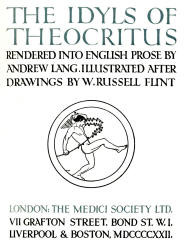
.jpg)
%20(sample).jpg)
%20(sample)%20(rear).jpg)
.jpg)
.jpg)
.jpg)
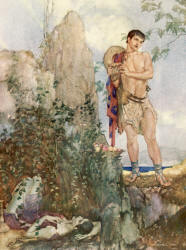
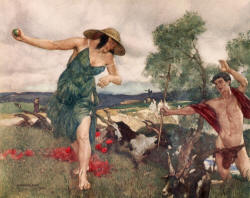
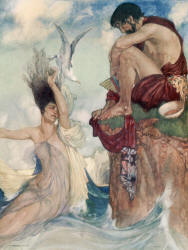
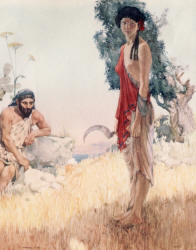
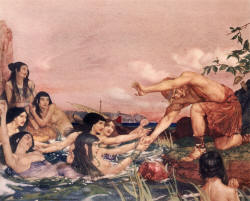
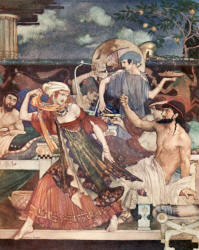
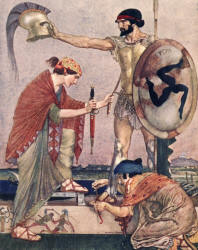
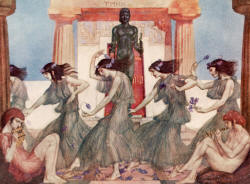
.jpg)
.jpg)
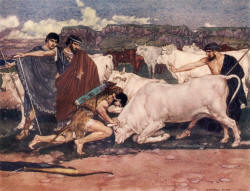
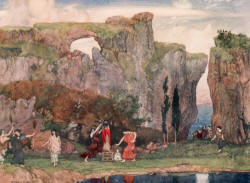
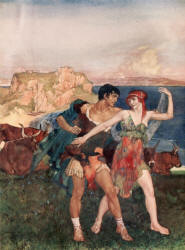
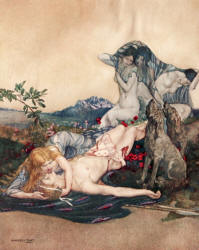
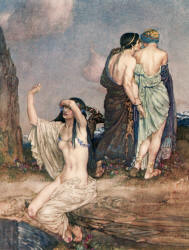
.jpg)
.jpg)
.jpg)